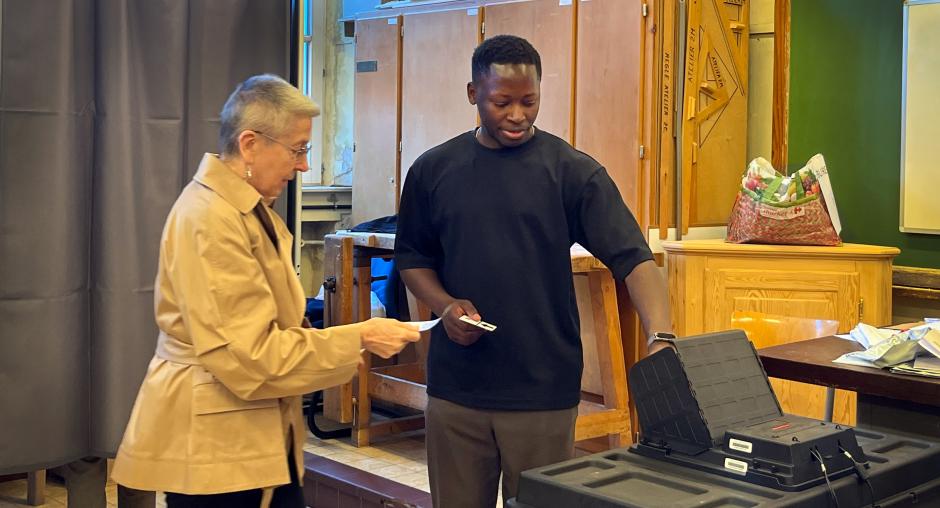EU citizens were able to effectively exercise their democratic rights in a competitive election to European Parliament: international observers

BRUSSELS, 10 June 2024 – The European parliamentary elections were competitive and offered voters a wide choice of genuine political alternatives, but differing practices for voter and candidate registration created unequal conditions and there were concerns about growing political polarization and disinformation, international observers from the OSCE Office for Democratic Institutions and Human Rights (ODIHR) said in a statement today.
“These elections were a major democratic exercise, covering 27 countries that were voting for representatives to a single body,” said Ingibjörg Sólrún Gísladóttir, head of the ODIHR Special Election Assessment Mission. “But the increasingly intolerant rhetoric in the campaign and physical attacks on politicians are of serious concern, and show the need for further effort at both EU and national level.”
More than 360 million voters were registered to vote, in elections professionally organized by national election bodies that generally enjoyed a high level of public confidence. However, most Member States do not provide full access for both citizen and international observation, which decreases the transparency of the election process.
The legal framework for the European Parliament elections is diverse, with member states adopting their own national laws and regulations. While national laws generally provide a good basis to hold democratic elections and ensure civil and political rights are respected, the right to vote as well as requirements for voter and candidate registration across the EU vary significantly, creating unequal conditions for citizens in different member states. Attempts to harmonize legislation at the European level have been made but have not found consensus.
Freedoms of expression, assembly, and association were respected, and voters had an extensive choice of political alternatives. However, in the course of the campaign, migration and some other topics became particularly divisive. There were regrettably instances of political violence, as well as sexist and xenophobic language. Observers also noted that a number of high-level EU officials continued to campaign actively in the run-up to the election, raising questions about the potential misuse of public resources. Positively, this was the first election where legislation was introduced to improve oversight of the online campaign, including requirements to combat disinformation.
Increased commitment and more initiatives both at the European and national levels were noted, but more efforts are needed for the election of under-represented groups, including Roma and Sinti, to form a fully inclusive institution. Women are fairly well represented in the European Parliament and political life, but the EU is far from achieving the goal of Europe-wide gender equality, and the level of representation varies considerably between countries. Limitations on the availability of information materials in different languages for ethnic and linguistic minorities in some places is against international standards. Further, some countries fell short of their legal obligations to ensure voters with disabilities could take part in the election process.
Across the EU, the media frequently opted to cover domestic politics rather than the European election campaign. The limited coverage of the campaign reduced the opportunity for voters to learn about candidates and their political programmes, limiting them in making a fully informed choice on election day. The spread of disinformation and harassment both online and offline created a difficult working environment for journalists in a number of countries.
ODIHR’s Special Election Assessment Mission took up its work on 15 May and will end on 14 June. The observation mission focused on issues identified during a needs assessment mission, and analyzed the extent to which the elections were held in line with the commitments made by all OSCE states to hold democratic elections, as well as with other international standards and national legislation.
For further information, please contact:
Katya Andrusz, ODIHR: +48 609 522 266 or [email protected]
